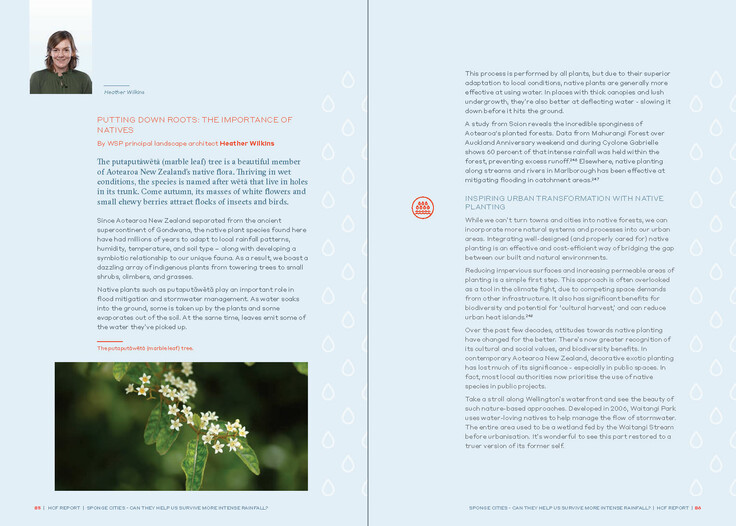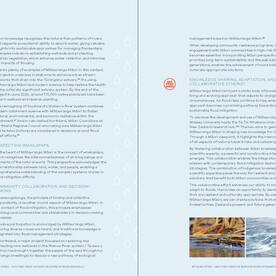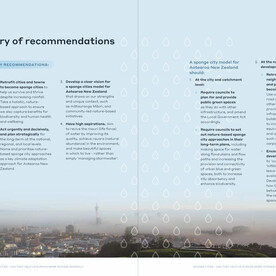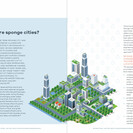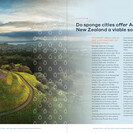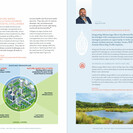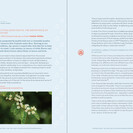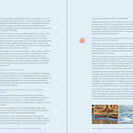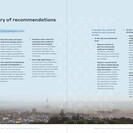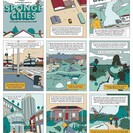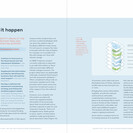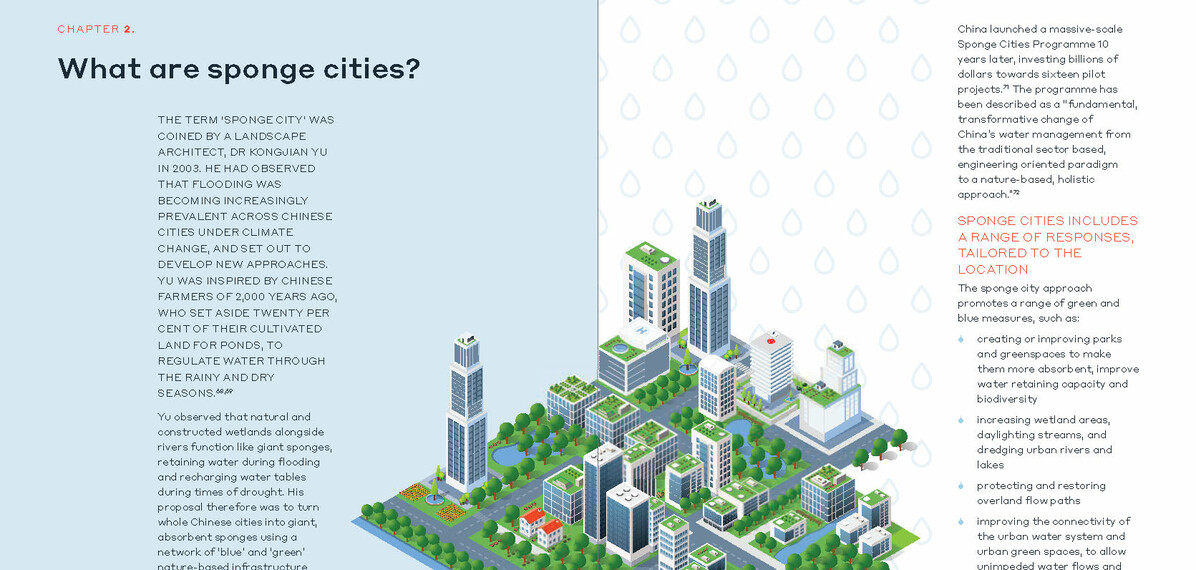
Showcase
- NZILA Category Winner Research & Communication — 2024
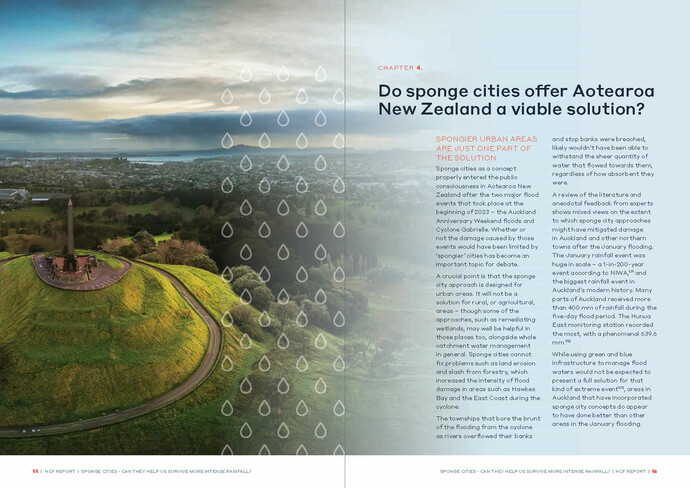
The sponge cities concept properly entered the public consciousness in Aotearoa New Zealand after the two major flood events in 2023 – the Auckland Anniversary Weekend floods and Cyclone Gabrielle. Whether or not the damage caused by those events would have been limited by ‘spongier’ cities has become an important debate topic, explored in the white paper ‘Sponge Cities: Can they help us survive more intense rainfall?’ by Mahi a Rongo Helen Clark Foundation in partnership with WSP NZ Ltd. The research explores the benefits and limitations of the ‘Sponge Cities’ model in the Aotearoa New Zealand context. Kali Mercier, WSP Fellow and Deputy Director of the Helen Clark Foundation and report author explores the potential of transforming urban areas into ‘sponge cities’ as a proactive measure to minimise future risks. Landscape architectural thinking is promoted at the core of the report, with seminal work by landscape architect Dr. Kongjian Yu showcased as the underpinning theoretical model. Proposing multiple strategies for adopting nature-based flood management models, the report advocates for coordinated planning at national and local levels. It recommends initiating incremental adoption of green infrastructure as a pragmatic starting point for all towns. The report makes clear recommendations for spongier approaches to stormwater management that must be urgently explored to fortify the country against climate impacts and reduce flood risk. While creating spongier places and spaces on a large scale across Aotearoa New Zealand’s many towns and cities will cost, not doing it will ultimately be much more expensive.
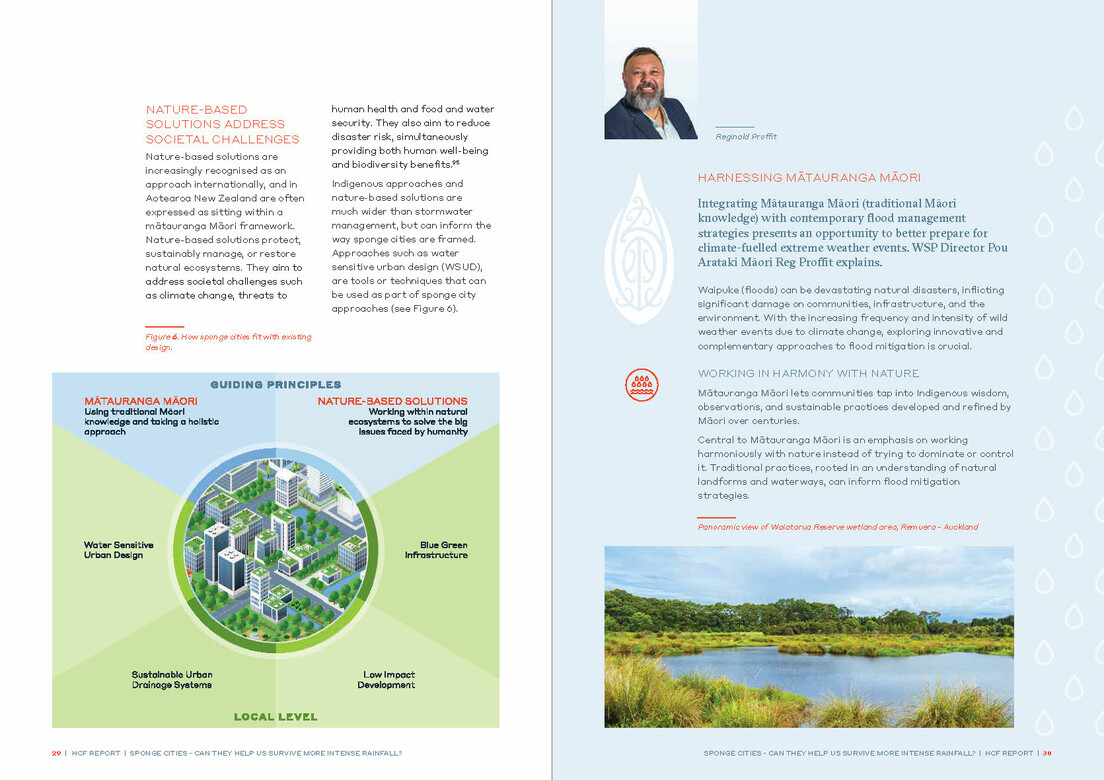
This report sets out the state of our cities, towns, communities, and associated infrastructure in response to climate change. It gives clear recommendations to support implementation of sponge cities and seeks to ensure that mātauranga and tikanga Māori is at the forefront of thinking.
The report seeks to offer an approach that aims to protect, enhance and sustainably manage water resources in urban environments, by slowing the passage of stormwater - It involves cities working with water rather than against it.
This project is outstanding in meeting the criteria for sustainability to allow for future climate adaptation and increase the community’s resilience to climate change, and tangata whenua collaboration on design responses.
The Helen Clark Foundation | Mahi a Rongo in partnership with WSP New Zealand Ltd. Kali Mercier, with Campbell Gardiner, Liam Foster, James Reddish, James Douglas, Vivienne Ivory, Reginald Profitt and Heather Wilkins
